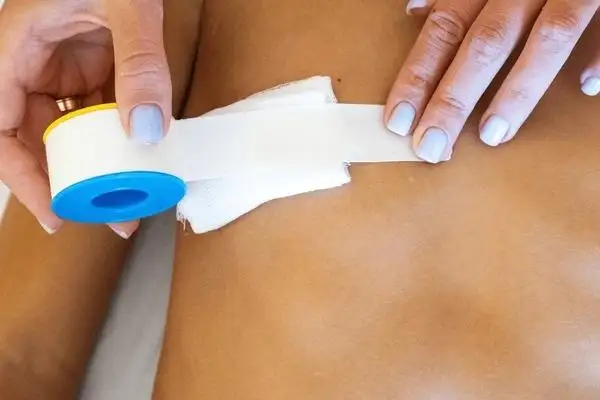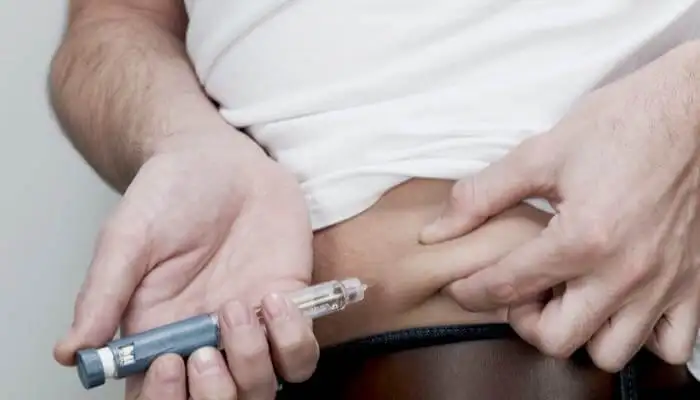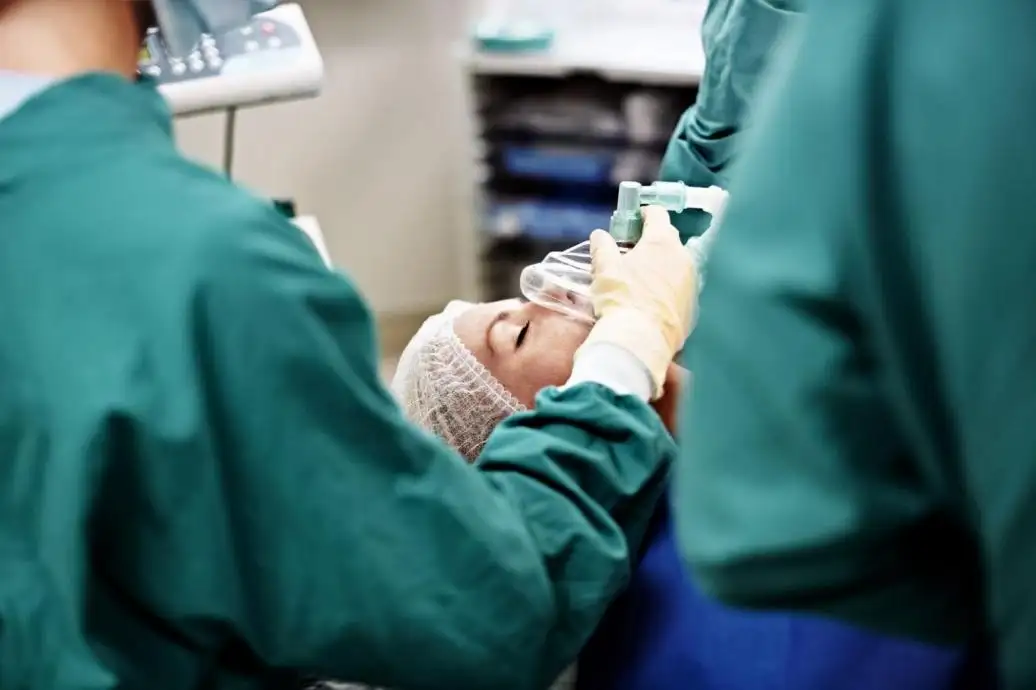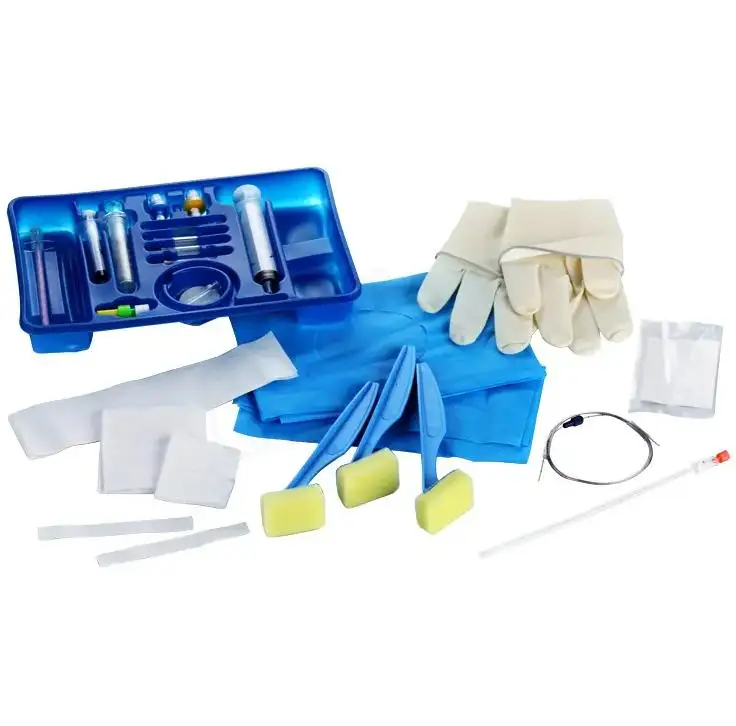What Medical Consumables Do You Supply? | Hospital Supply
What are Your Medical Consumables?
Healthcare facilities use medical consumables daily on a global scale. It is either in the sterile gloves that they use to safeguard the medical doctors and nurses or the diagnostic consumables that make the laboratory testing to be true, all these are the fundamentals to attend to the patients. You, either as a hospital administrator, a clinic manager, or even a procurement officer, might be posing yourself the following question: what medical consumables do you supply, and how can such things be useful to me in my healthcare practice?
Learning the Sense of Medical Consumables
To enter into the list of the surgical consumables and other groups, we will first define medical consumables. Consumables are single or short-lived products, unlike durable medical equipment, which lasts long and, therefore, should be replenished regularly.
- Medical consumables include disposable gloves, masks, gowns, syringes, IV sets, wound dressings, and diagnostic kits, among others.
- They are also known as medical disposables /medical consumables with special emphasis on either being single-use or limited-use.
- These products ensure that there is control over infections, patient safety, and proper medical outcomes.
To put it plainly, consumables are the unrecognized heroes of the healthcare industry that go unnoticed, yet without which no operations can go on well.
The List of Medical Consumables
The medical consumables list is a long one and includes different forms of items that are used daily in a hospital, clinic, and laboratory. An analytical summary is provided below.
Protective Consumables
The healthcare workers and the patients are both safeguarded by medical safety gear.
- Personnel protective equipment (PPE)
- Surgical masks and respirators
- disposable gloves (latex, nitrile, vinyl)
- Isolation gowns and caps
- Shoe covers and face shields
They are non-durable healthcare products that are in the first line of preventing infectious diseases.
Wound Care Consumables and Surgical
Single-use products are significant in surgery and wound management. The list of surgical consumables can include:
- Surgical drapes and sutures
- Scalpels and blades, Disposable
- Wound dressing and bandaging
- Sterile gauze pads
- Adhesive tapes and cotton swabs
Without these supplies, there can be no means of keeping the sterile conditions in the surgery.
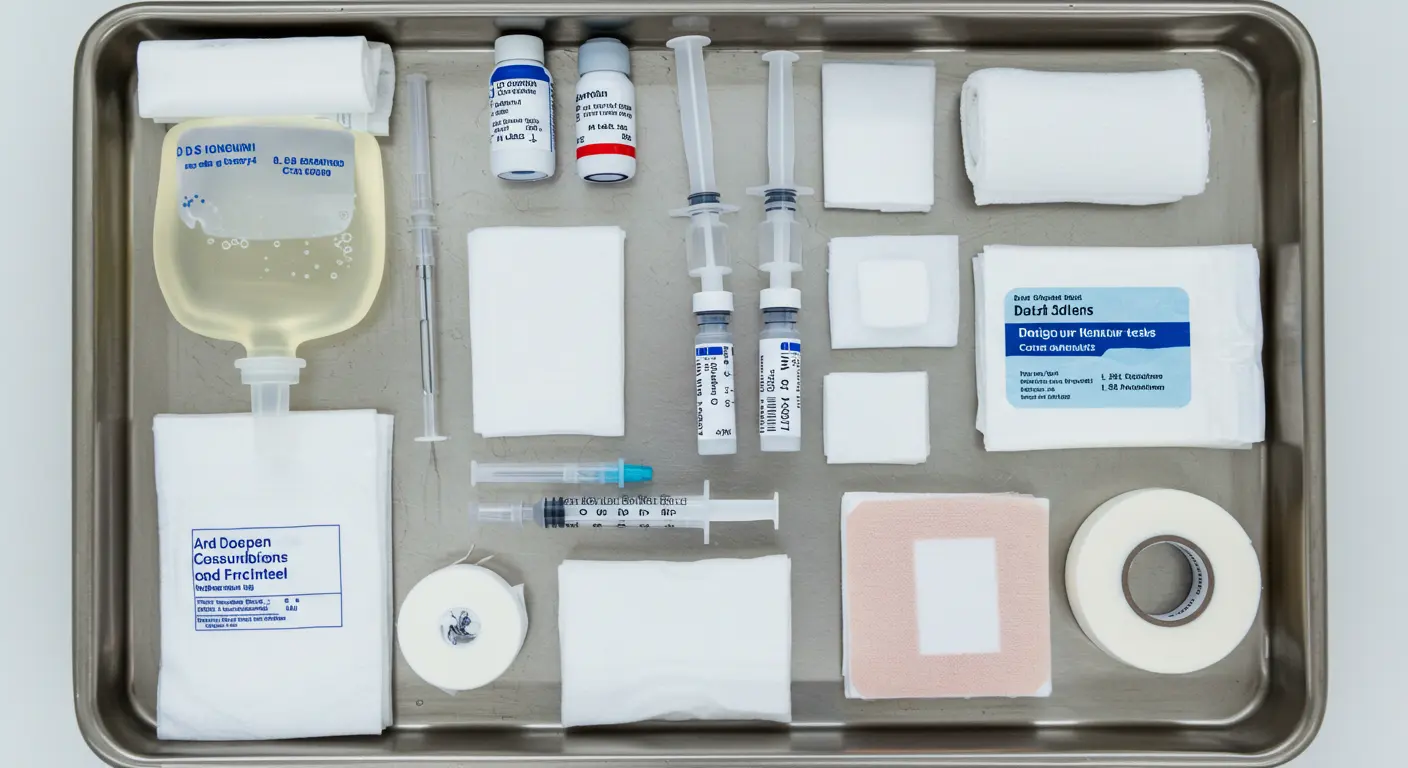
Infusion Consumables and Injections
The most popular type of medical consumables includes those that are used to deliver drugs and infuse fluids:
- IV cannulas and IV sets
- Needles and syringes that are disposable
- Infusion tubes and catheters
- Tubes and lancets for blood
These are single-use medical consumables that are necessary in the administration of medicine or the collection of samples.
Diagnostic Consumables and Laboratory Consumables
To perform accurate tests, the laboratories require the persistence of diagnostic consumables:
- Urine collection cups
- Saliva collection tubes
- Test kits and reagents
- Culture swabs
- Centrifuge tubes
These consumables ensure that the diagnosis of the patients is timely and effective.
General Hospital Consumables
Then there are the items that are used each day in the hospitals and are not necessarily mentioned in the prior categories:
- Wipes/Solutions Disinfectant
- Thermometer probe covers
- Nebulizer masks
- Dialysis consumables
- One-time medical equipment
A blend of these products will ensure customer satisfaction, cleanliness, and efficiency in health care.
Types of Hospital Items and Purchases
When we talk of types of hospital consumables, we had better subdivide them into use-groups:
- Patient Care Consumables - Wound dressing, wound kit.
- Clinical Consumables - Diagnostic Consumables, Blood Collection Consumables, and Laboratory Reagents.
- Sterile Consumables - Dowels, surgical packs, dowels, gloves, gowns.
- Disposable Healthcare Products - Any hospital consumable products that are utilized daily, like syringes, masks, and IV sets, which can be used daily
What medical consumables do you supply? Such classification implies that the procurement managers will find it easier to design the same medical consumables checklist within the facilities.
The Supplier Power of Medical Consumables
The identification of the trusted providers of medical consumables is important. Greetmed and other firms specialize in providing medical supplies in large quantities, like PPE, diagnostic kits, among others. In choosing the supplier, look at:
- Quality Certifications (i.e., ISO, CE, FDA compliance)
- Quantity of Products (general medical supplies and other special supplies)
- Affordability and Scalability (ability to provide a cheap bulk supply of medical consumables)
- Supply chain Reliability (needed to have continuous operations of the hospitals)
Consumables: Hospitals and Clinics Around the World
Hospital and clinic consumables in the world are similar; nevertheless, they differ in terms of the demand that varies based on the area of application in healthcare. For instance:
- The countries with high demands prefer to buy high-quality disposable medical consumables and those that are more environmentally friendly.
- Third-world countries have been focusing on the development of affordable medical consumables within the healthcare sector.
Irrespective of the location, a developed PPE and medical consumables supply chain must be a significant source of patient safety and work efficiency.
Technical Insights: Safety Standards and Materials
The following are some of the key considerations to make to create technically data-driven procurement teams:
- Sterility - Surgery instruments like surgical drapes, IV sets, and catheters are sterilized either through gamma or ethylene oxide.
- Material Composition - The disposable gloves can be made of latex, nitrile, or vinyl, with each having different resistance properties.
- Shelf Life -Most sterile consumable items have a shelf life of 2-5 years.
- Regulatory Standards - Regulatory items must be congruent with either ISO 13485, CE, or FDA approvals, based on the market.
These technical circumstances distinguish the superior quality of consumables from and inferior quality ones.
Conclusion
What medical consumables do you supply? The answer is a long list of products, including protective PPE and diagnostic testing bundles, and surgical supplies. Such products may see themselves as being simple, but they are the bloodhouses of healthcare facilities. The use of reliable medical consumable suppliers like Greetmed would ensure that the providers of the medical services have a steady and affordable supply of the medical consumables at the right quality.
Submit Your Request
Recent Posts
Tags
- Adult Diapers
- Are custom medical devices safe
- Baby Diapers
- Can respiratory anesthesia be used
- Digital Healthcare
- Do you offer customized consumables
- European Market
- How do you take care of a skin wound
- Industry Trends
- Lady Sanitary Napkins
- Medical Devices
- OEM Medical Devices
- Product Introductions
- Protective Equipment
- Under Pads
- What are custom-made medical devices
- What are diagnostic products
- What are hospital dressing products
- What are medical tube catheters
- What are some common protective equipment
- What are the appropriate applications for hospital dressing products
- What are the appropriate uses for protective equipment
- What is a gynecological examination
- What is a medical consumable
- What is an anesthesia kit
- What is an OEM in medical devices
- what is an wound skin care
- what is can disposable ultrasonic diagnostic
- What is good manufacturing medical devices
- What is hospital-grade protective equipment
- what is medical equipments hospital furniture
- What is medical sterilization wrapping
- What is rehabilitation equipment device
- What medical consumables do you supply
- Where can I find laboratory consumables wholesale
- where can I find medical protection device
- where to buy hypodermic accessories
- where to buy medical apparel
- where to buy medical consumable accessories
- where to find OEM medical device supplier
- where to find rehabilitation equipment supplier





